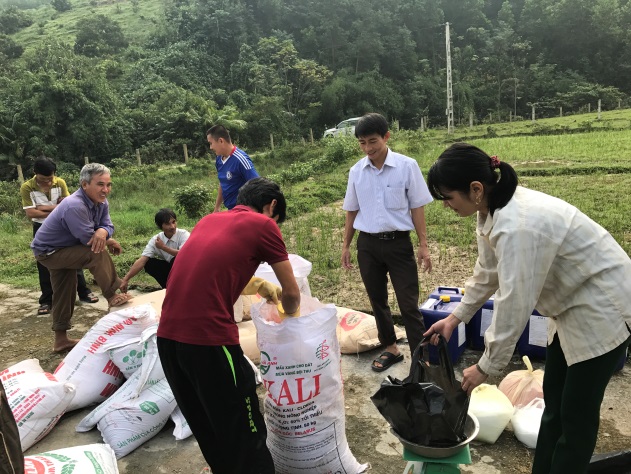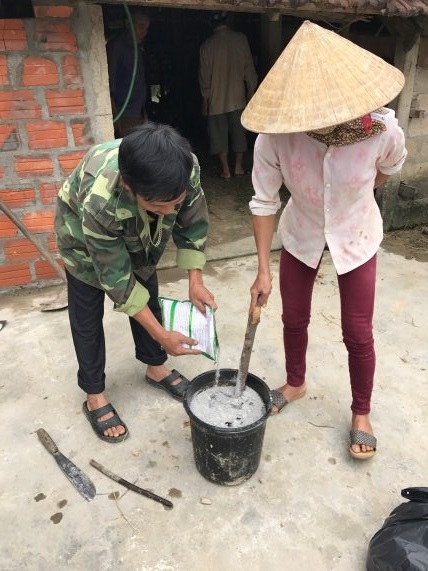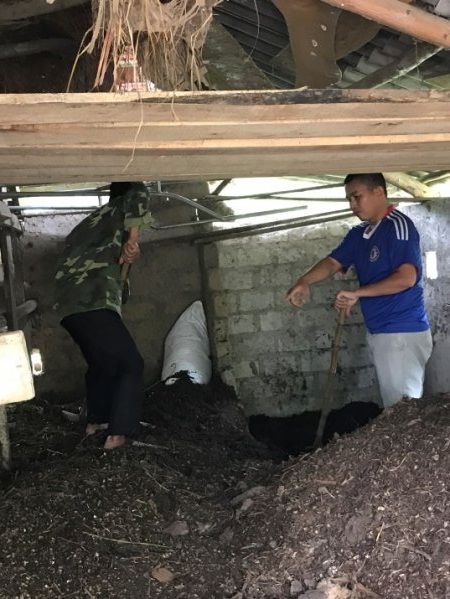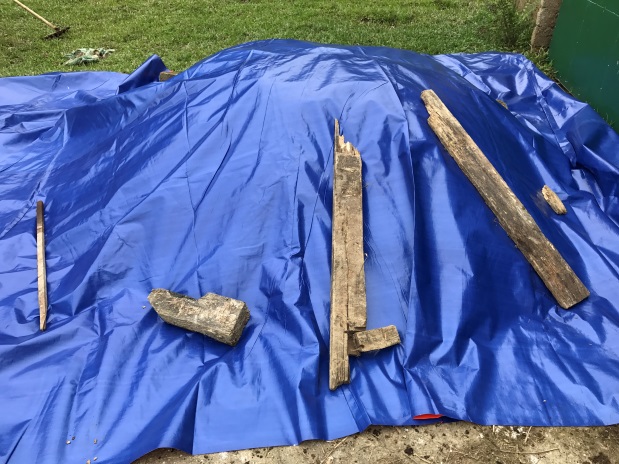




This planting started in 2017 August to:
i) maximize available resources, make use of agricultural by-products, volunteer agricultural labor to produce bio-organic fertilizer with high value,
ii) enhance soil micro-organisms, rapid decomposition of organic matters, eliminate and destroy harmful microorganisms that exist in manure, support plants to increase their resistance,
iii) contribute to environment protection, reducing the toxicity of chemicals in agricultural products due to the abuse of chemical fertilizers,
iv) raising awareness to villagers in clean environment.
Hence, farmers will have a number of benefits from compost they make, including, access to fertilizer resources with reasonable price for their conditions, less depending on markets, keeping the environment clean and ensuring good quality of agricultural products.
18 households - selected from different community meetings – participated in this activity and received technical trainings on producing compost in a step-by-step process combining theory and on-hand practical implementation in their gardens.
The following factors made this activity effective:
- Farmers paid special attention to applying scientific knowledge to their crop production activities for better products,
- the necessary materials were locally available,
- weather conditions were favorable for farmers during the implementation as there was little rain and low humidity.
- Projects provided a small amount of inputs such as Trichoderma probiotics, molasses, and lime
- Compost can be produced in the amount that farmers need for their crops and trees.
- Even though only 18 households took part, technical material was shared with other farmers
- Growers should understand how to use compost in the Integrated Pest management process, in particular how to use compost for trees and crops in certain growing stages (for example, the fruit generating period is important).
- Frequent checks should be made to ensure the compost is in good condition.